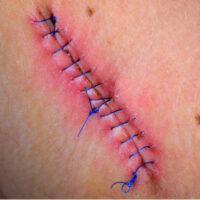Holding Hospitals Accountable For Post-Op Infection Protocol Failures

Post-operative infections can be life-threatening and deeply disruptive to recovery. They often require additional surgeries, prolonged hospital stays, or long-term treatment. While patients may assume these infections are unfortunate complications, many are actually preventable.
When hospitals fail to follow proper infection control protocols, they may be legally responsible for the harm caused. In Maryland, holding a hospital accountable for post-op infection failures can be challenging, but with the help of a skilled Baltimore personal injury lawyer, you can take action and seek the financial relief you deserve.
Hospital Liability and Infection Protocols
When medical malpractice is discussed, people often picture a single negligent doctor making a critical mistake. But in the case of post-surgical infections, the issue frequently stems from systemic failures in hospital protocol, not individual decision-making.
Inadequate sterilization of instruments, failure to maintain a sterile surgical environment, lack of proper hand hygiene by staff, or poorly managed wound care instructions can all contribute to dangerous infections. Post-operative infections may be the result of:
- Contaminated surgical tools or implants
- Unsanitary patient rooms or operating suites
- Failure to administer timely antibiotics
- Improper wound dressing and monitoring
- Staff not washing hands or wearing gloves
- Overcrowded or understaffed recovery wards
When hospitals fall short in these areas, they put every patient at risk, not just those with already fragile health.
Hospitals are responsible for maintaining a clean, safe environment and ensuring their staff adheres to strict post-operative care procedures. When they fail in these duties, and a patient acquires a serious infection, the facility itself may be liable.
Maryland hospitals are expected to follow infection prevention guidelines set by organizations like the Centers for Disease Control and Prevention (CDC) and The Joint Commission. If it can be proven that these standards were not followed, the hospital could be found negligent.
Gathering the Evidence You Need
Successfully pursuing a medical malpractice claim involving post-operative infection requires strong evidence. But much of the documentation may be difficult to access without legal help. With the right legal support you can obtain medical records, request internal reports, and access infection rate data. Lawyers with experience in medical malpractice can also consult with infectious disease experts, determine if protocol breaches occurred, and identify whether the infection was preventable.
Infections after surgery can lead to long-term health problems, lost income, and overwhelming medical bills. If hospital negligence played a role in your suffering, you shouldn’t have to bear the burden alone. By working with a trusted Baltimore personal injury lawyer, you can pursue the compensation you need to cover your expenses and begin to move forward.
Hospitals and their insurers often fight these claims aggressively, but a knowledgeable lawyer knows how to build a compelling case and advocate for your rights.
Could a hospital be responsible for your losses? Have a conversation with the legal team at Iamele & Iamele, LLP to explore your recovery options. Holding hospitals accountable isn’t just about justice, it’s about protecting future patients from suffering the same preventable harm. Contact us to book your confidential appointment.

